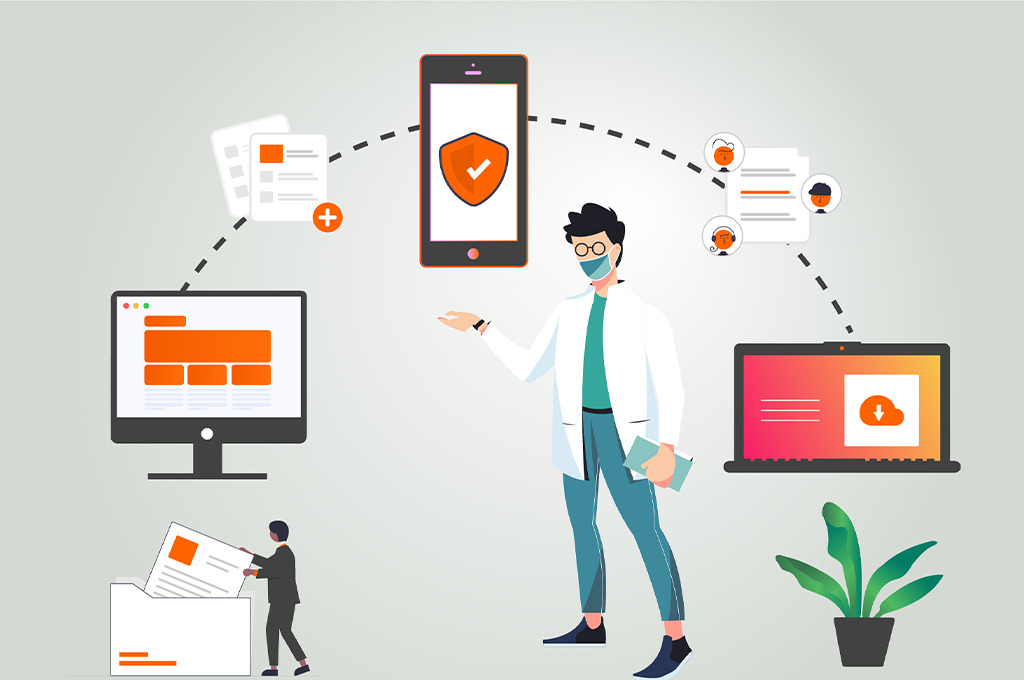Clinical trials, the cornerstone of medical advancement, have challenges with data efficiency, transparency, and integrity. The process is hampered by excessive costs, difficulties in recruiting, and delays preventing vital medication creation. The core principles of blockchain technology—immutability, security, and decentralization—offer a possible means of revolutionizing clinical trials.
In the rapidly evolving healthcare industry, where innovation is essential to progress, blockchain has emerged as the unexpected clinical trial superhero. You did hear right! The technology underlying cryptocurrencies is not only revolutionizing clinical trial conduct and ensuring safe transactions, but it is also making ripples in the intricate realm of medical research.
Imagine a world where all information about clinical trials is securely recorded, openly shared, and practically impregnable. Allow us to introduce you to the blockchain, an incorruptible ledger that holds the potential to speed up operations, enhance data integrity, and potentially accelerate the pace of medical discoveries.
Read on as we dissect the jargon and highlight the blockchain's capabilities concerning clinical studies.
Challenges in Traditional Clinical Trials:
- Data integrity: According to a 2020 American Medical Association poll, 36% of researchers had to deal with data tampering or fabrication. The blockchain's tamper-proof ledger architecture ensures that data is never altered after it is recorded, adding credibility to the research process.
- Transparency: Uncertainty in trial data raises concerns about potential bias and hinders cooperation. By providing a shared, auditable record of all trial acts that is accessible to authorized parties, blockchain promotes confidence and accountability.
- Recruitment Challenges: The most significant constraint is locating and hiring qualified candidates. Safe patient registers may be established with the use of blockchain technology, streamlining the procedure and enabling targeted recruitment. Trials Journal released a report stating that "Blockchain technologies bring tools to achieve inclusive networks that enable data sharing on the research side.".
Blockchain: A Potential Game Changer
Blockchain's core functionalities offer significant advantages for clinical trials:
- Enhanced Data Security: Blockchain secures data by using encryption to prevent unwanted access or change. This immutability lowers the possibility of fraud and promotes confidence in the integrity of the data. Dr. Don Callahan, a professor at the MIT Sloan School of Management, emphasizes, "Blockchain has the potential to transform how clinical trial data is managed, ensuring the highest levels of security and traceability.".
- Improved Transparency: In a blockchain, every activity and change to data is permanently and chronologically recorded. As a result, the trial procedure is made completely transparent, enabling regulators, researchers, and patients to monitor developments and confirm the accuracy of data. "Blockchain provides a way for information to be recorded and shared through a peer-to-peer community...enabling data sharing on the research side and ensuring all the needed transparency," notes prominent consulting company Deloitte.
- Streamlined Processes: On the blockchain, smart contracts—self-executing code—have the ability to automate particular trial activities. This can speed up procedures like data collection, eligibility verification, and regulatory compliance checks. An investigation into the application of smart contracts for "clinical trial phase control," which was documented in a proof-of-concept paper available in the National Institutes of Health library, showed promise for expediting the scientific method.
Benefits for stakeholders:
- Patients: By giving them safe ownership over their medical data, blockchain empowers patients. They have the freedom to decide what information to reveal, with whom, and why. This promotes informed consent and increases public confidence in the study project.
- Researchers: A transparent and safe platform for data collection and analysis is beneficial to researchers. Blockchain speeds up trial procedures, lowers administrative costs, and promotes cooperation.
- Regulators: Access to an impenetrable record of trial activities allows regulatory agencies to effectively oversee and guarantee compliance with ethical standards.
Addressing Challenges and the Road Ahead
Blockchain has a lot of potential; however, there are certain issues that need to be resolved:
- Scalability: Large-scale clinical studies create enormous amounts of data, which current blockchain systems may not be able to process. Enhancements in scalability are essential for broader adoption.
- Integration: Resolving incompatibilities and creating standardized data formats are necessary for integrating blockchain with the current healthcare infrastructure.
- Regulation: To resolve data privacy issues and guarantee adherence to current legislation, clear regulatory frameworks are required.
Now, let's address the most crucial question: does blockchain technology actually live up to the hype? Let's just say that life isn't all rainbows and butterflies. Although blockchain has great promise, it is not a panacea for all clinical trial-related issues. However, barriers to widespread adoption include those related to implementation, law, and just plain human resistance.
But fret not, fellow healthcare enthusiasts—things are looking up. The day when clinical trials are conducted more quickly, more affordably, and more successfully than ever before is drawing near as entrepreneurs leverage blockchain technology to provide new opportunities for medical study.
Conclusion
Clinical research challenges may now be revolutionarily solved with the use of blockchain technology. Blockchain's improvements in data security, transparency, and process simplification might empower patients, boost research productivity, and ultimately expedite the development of life-saving drugs.
Researchers, regulators, and business leaders must work together to develop and implement secure, scalable blockchain solutions. By overcoming the present challenges and making use of this revolutionary technology, we can usher in a new era of clinical trial efficiency, transparency, and trust. This will hasten the advancement of medical science.
Want to know more about how Octalsoft leverages blockchain technology to power our eClinical suite? Book a demo with us now!

